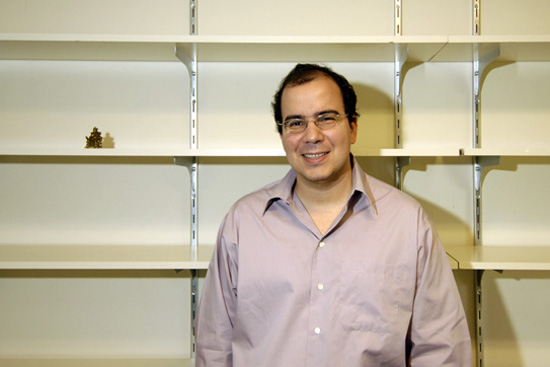Examining Venezuela’s Economic and Political Struggles
 |
| Francisco Rodríguez, assistant professor of economics and Latin American studies, worked as the chief economist of the Venezuelan National Assembly prior to coming to Wesleyan. |
| Posted 11/16/05 |
| In the recent Summit of the Americas in Argentina, Venezuelan President Hugo Chávez openly defied President George Bush by reportedly declaring that the meeting would mark the end of Bushs push for free-trade era in Latin America. However, the meeting marked another step in the contentious relationship that Chávez has staked out with the American president.
According to Assistant Professor of economics and Latin American Studies, Francisco Rodríguez, this increasingly vocal and confrontational posturing by Chávez is typical. Rodríguez knows this first hand. Hes met Chávez. In fact, Rodriguez has even been a guest at the Venezuelan Presidential Palace. That was in 2002, when Rodríguez was working as the chief economist of the Venezuelan National Assembly (2000-2004) where it was his job to compile economic outlook prediction reports for the country. One of Rodríguez’s reports caught the attention of the moderates within Chávez’s administration. It warned of a looming Venezuelan financial crisis and deep recession. “At that moment, it seemed that the meeting was a positive step towards Chávez becoming a more progressive, democratic leader,” says Rodríguez. “Shortly after the meeting, however, Chávez realigned himself with the more radical advisors within his administration and our report was widely ignored.” It wasnt long after Rodríguezs meeting with Chávez when Venezuelan citizens tried unsuccessfully to oust the dictator from power. The repercussions are being felt to this day. Numerous citizens, journalists and politicians have been thrown in jail for simply speaking out against Chávez. Since joining Wesleyan, Rodríguez has continued much of the same research he conducted while working for the Venezuelan National Assembly. At Wesleyan, he examines economic growth, the political economy and international trade relations of Latin American countries, like Venezuela. One of his most recent papers studies how economic policies like openness, redistribution and liberalization, which are successful within one country, cannot necessarily succeed in another. “There are many relevant interactions between policies, institutions and economic structure that make it problematic to use one countrys growth experience to make inferences about other countries,” says Rodríguez. Similarly, his recent research outlines how open trade could be harmful to Latin American countries. In fact, Rodríguez predicts the free and open trade agreement, proposed by the Bush administration at the recent Summit of the Americas, is bound to fail. Latin American countries run the risk of not being able to compete with U.S. high-tech goods or East Asian low-skill intensive manufactured imports, says Rodríguez. Therefore, theyre forced to specialize in less dynamic sectors such as natural resource and agricultural exports.” Rodríguez is both academically and personally interested in Venezuelas economic issues. He was born in Venezuela, yet admits he is critical of elements of the leftist Chávez administration. “His human rights violations are simply atrocious,” Rodríguez says. Even the new television station, Telesur, whose signal is broadcast over Latin America on a satellite, which Venezuela recently purchased from China, proves what a powerful hold the Chávez administration has on the people. “It’s Latin America’s version of Al Jazeera,” says Rodríguez. However, despite the negativity surrounding Chávez and his government, Rodríguez admits the administration has recently developed some positive social programs to assist the needy. One called “Barrio Adentro” places doctors to live and work in the poorest areas of the country and other, Mercal,” sells food to the needy at subsidized costs. While Rodríguez admits that these social programs have raised living standards among the poor, he is skeptical of the governments intention as well as of the sustainability of their policies. He claims that Venezuelas economy continues to be threatened by high budget deficits and an overvalued exchange rate. “Before Chávez, oil cost $9 a barrel and after he came into power it rose to as high as $60 a barrel, explains Rodríguez. While some of the revenues are being spent on social programs, a considerable proportion is spent on lavish government projects.” These include such projects as a luxurious $54 million A319CJ Airbus plane for Chávezs personal use. Rodríguez says that Chávez and the Kuwaiti royal family are the only developing country government to have purchased the airplane for official use. Another is a case of missing money — $3.2 billion. In 2002, the Venezuelan National Assembly assigned the money to the Macroeconomic Stabilization Fund a fund the nation uses to protect itself against sudden changes in oil revenues. However, Rodríguez says the funds were never deposited and the government cannot account for their whereabouts. Rodríguez says the funds are thought to have been used to finance political destabilization in other Latin American countries. These revenues could instead be saved, invested and used to pay off Venezuela’s current debt,” he says. |
| By Laura Perillo, associate director of Media relations |

